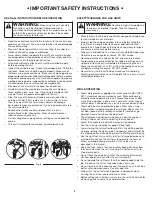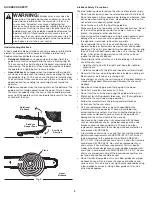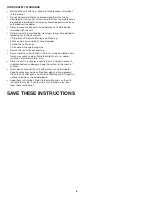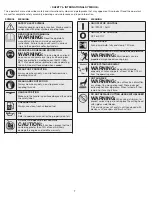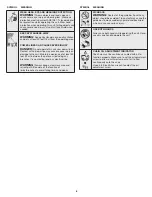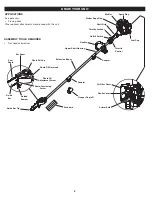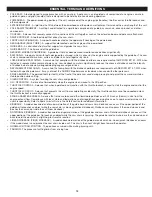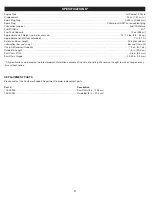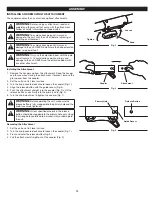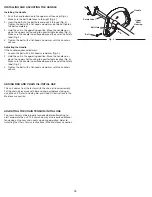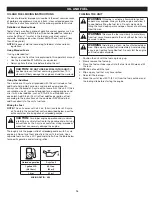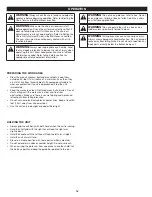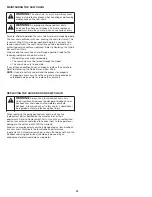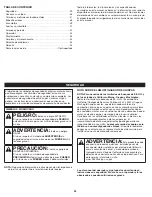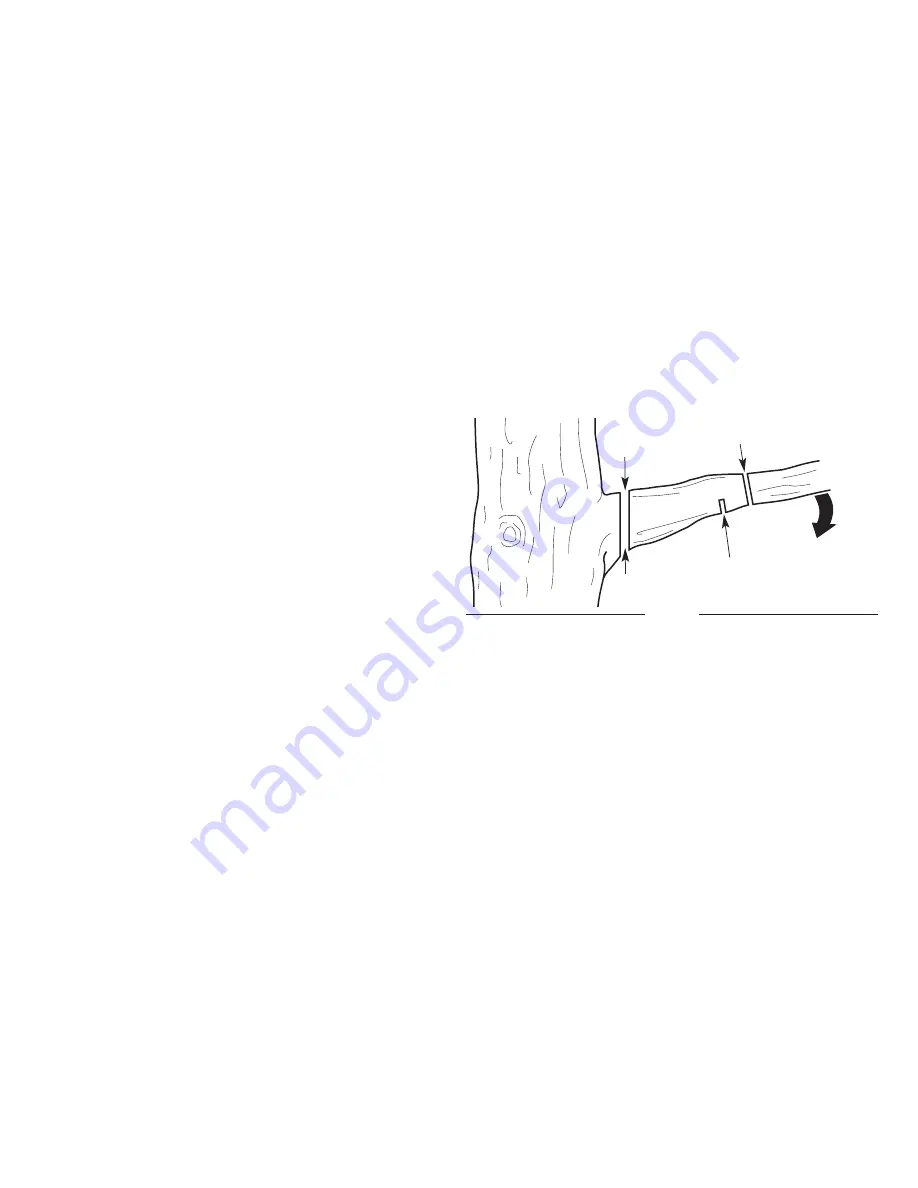
17
TIPS FOR BEST RESULTS
• Follow all safety instructions. Refer to the Safety section.
• Only cut wood and materials made of wood. Do not attempt to
cut sheet metal, plastics, masonry or any other non-wood
materials.
• Work slowly and maintain careful control.
• Practice cutting a few small branches before beginning a major
cutting operation.
• Do not attempt to cut branches with diameters larger than 6 in.
(15.2 cm).
• Remove lower branches first to allow clear access to higher
branches and to provide space for falling branches.
• Remove long branches in stages, not all at once.
CUTTING PROCEDURE BASICS
1. Start the unit. Refer to Starting Instructions in the Starting and
Stopping section. Keep your fingers off the throttle control until
you are ready to make a cut.
2. Make sure that oil is flowing onto the guide bar and saw chain. A
small spray should be visible. When using the unit for the first
time, allow 30-60 seconds for the oil to begin flowing.
3. Press the unit against the wood and maintain a firm, steady
pressure through most of the cut. Do not put pressure on the
unit at the end of the cut.
4. Keep the unit running through the entire cut.
5. Do not try to force the saw through the wood. Allow the saw
chain to do the cutting. Exert only light pressure. Forcing the cut
could result in damage to the unit or personal injury.
6. Release the trigger as soon as the cut is completed. Allow the
saw chain to come to a complete stop. The saw chain, guide bar
and motor may experience unnecessary wear if the unit is run
without a cutting load.
Fig. 8
PRUNING
Pruning is the process of cutting limbs from a living tree.
1. Run the unit at full speed.
2. Make the first cut approximately 6 inches (15 cm) from the tree
trunk. Cut upward, from the underside of the limb. Use the top
of the guide bar to make this cut. Cut a third of the way through
the diameter of the limb (Fig. 8).
3. Make the second cut 2 - 4 inches (5 - 10 cm) farther out on the
limb. Cut downward, from the top of the limb. Use the bottom of
the guide bar to make this cut. Cut completely through the limb
(Fig. 8).
4. Make the third cut as close to the tree trunk as possible. Cut
upward, from the underside of the limb stub. Use the top of the
guide bar to make this cut. Cut a third of the way through the
diameter of the limb (Fig. 8).
5. Make the fourth cut directly above the third cut. Cut downward,
from the top of the limb stub. Use the bottom of the guide bar to
make this cut. Cut completely through the limb stub to meet the
third cut (Fig. 8). This will remove the limb stub.
Third Cut
First Cut
Second Cut
Fourth Cut
Summary of Contents for CMXGJAMA25PS
Page 26: ...26 NOTES ...

